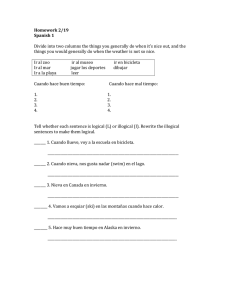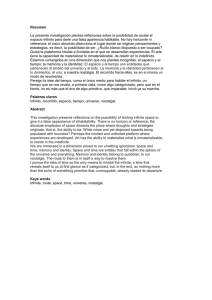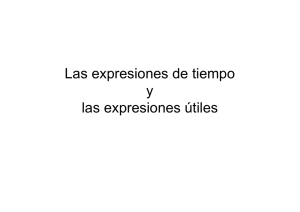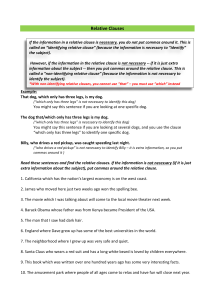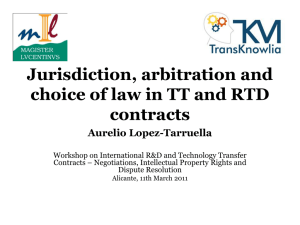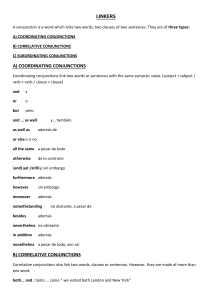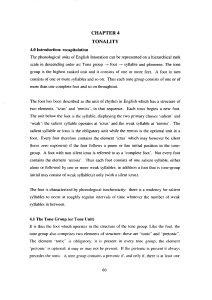RELATIVE CLAUSES OF TIME ADVERBIAL CLAUSES OF TIME
Anuncio
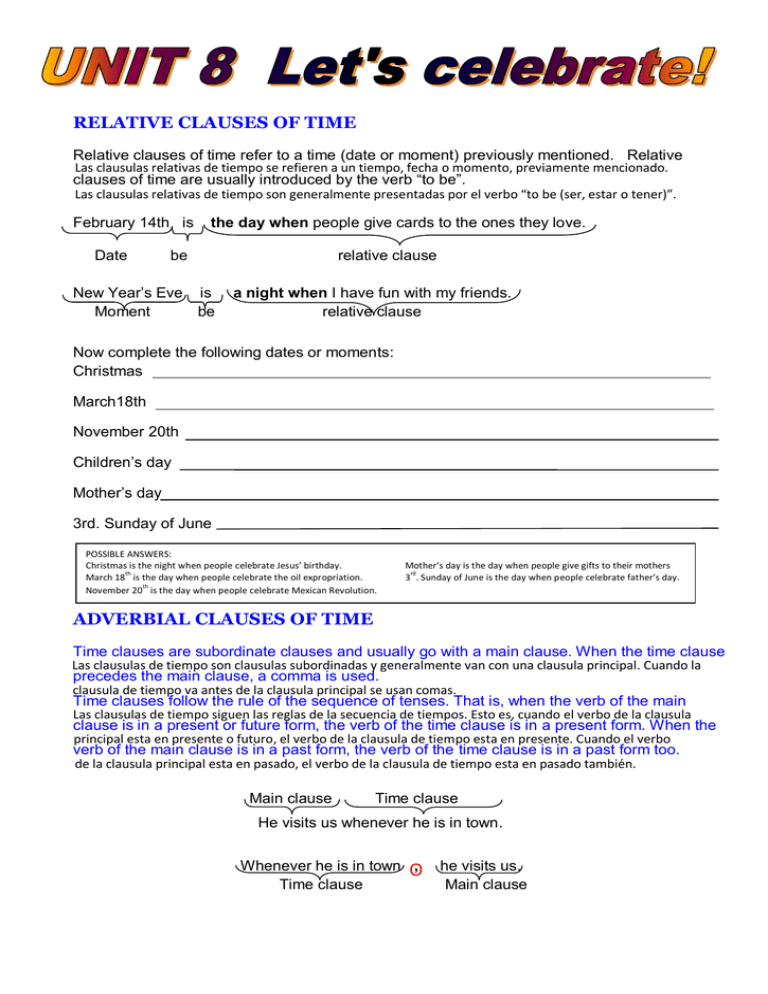
RELATIVE CLAUSES OF TIME Relative clauses of time refer to a time (date or moment) previously mentioned. Relative Las clausulas relativas de tiempo se refieren a un tiempo, fecha o momento, previamente mencionado. clauses of time are usually introduced by the verb “to be”. Las clausulas relativas de tiempo son generalmente presentadas por el verbo “to be (ser, estar o tener)”. February 14th is Date the day when people give cards to the ones they love. be New Year’s Eve is Moment be relative clause a night when I have fun with my friends. relative clause Now complete the following dates or moments: Christmas March18th November 20th Children’s day Mother’s day 3rd. Sunday of June POSSIBLE ANSWERS: Christmas is the night when people celebrate Jesus’ birthday. th March 18 is the day when people celebrate the oil expropriation. th November 20 is the day when people celebrate Mexican Revolution. Mother’s day is the day when people give gifts to their mothers rd 3 . Sunday of June is the day when people celebrate father’s day. ADVERBIAL CLAUSES OF TIME Time clauses are subordinate clauses and usually go with a main clause. When the time clause Las clausulas de tiempo son clausulas subordinadas y generalmente van con una clausula principal. Cuando la precedes the main clause, a comma is used. clausula de tiempo va antes de la clausula principal se usan comas. Time clauses follow the rule of the sequence of tenses. That is, when the verb of the main Las clausulas de tiempo siguen las reglas de la secuencia de tiempos. Esto es, cuando el verbo de la clausula clause is in a present or future form, the verb of the time clause is in a present form. When the principal esta en presente o futuro, el verbo de la clausula de tiempo esta en presente. Cuando el verbo verb of the main clause is in a past form, the verb of the time clause is in a past form too. de la clausula principal esta en pasado, el verbo de la clausula de tiempo esta en pasado también. Main clause Time clause He visits us whenever he is in town. Whenever he is in town O , Time clause he visits us. Main clause There are other time clauses that you don’t know or maybe you do but with a different Hay otras clausulas de tiempo que no conoces o quizás las conoces pero con una función gramatical grammatical function, here they are: diferente, aquí te las mostramos: As (como) As soon as (tan pronto como) As long as (en tanto que) By the time (cuando, en el momento) The moment that (en el momento en que) Once (una vez que) Hardly…when (apenas… cuando) Immediately (inmediatamente, tan pronto como) No sooner …than (no antes de) Since (desde entonces) The sooner (lo más pronto) Till/until (hasta) Whenever (cuando sea) While (mientras, en tanto que) The first/last/next time (la primera/última/próxima) These are sentences from your book. Do you remember them? When people get married in Japan, they sometimes have the ceremony at a shrine. After the food is served, the guests give speeches or sing songs. Before the guests leave, the bride and groom give them presents. Read the sentences and match the two columns: 1. She takes off her shoes. B. Tidy your bedroom. 2. Turn the lights off. C. When we go to a party 3. They always do the homework. D. before you go to bed 4. After he gets up. E. After they eat 5. When you go shopping, please? F. When she gets home 6. We take a gift with us. G. He takes a shower 7. Before you go out to play. ANSWERS A 5 B7 C6 D2 E3 F1 G4 A. Can you buy me a cartoon of orange juice

